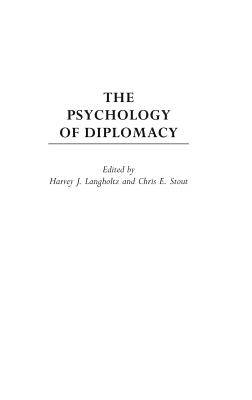
- Afhalen na 1 uur in een winkel met voorraad
- Gratis thuislevering in België vanaf € 30
- Ruim aanbod met 7 miljoen producten
- Afhalen na 1 uur in een winkel met voorraad
- Gratis thuislevering in België vanaf € 30
- Ruim aanbod met 7 miljoen producten
Omschrijving
The first book focused on diplomacy from a psychological perspective, this work features 12 top diplomats and psychologists examining issues and approaches. Factors considered include the implicit and explicit ground rules for the interaction of diplomats, and their assumptions about their own roles and those of their counterparts. The book explores the vital question: Do diplomats meet to work out agreements and solutions for the common benefit of humanity, or is it the responsibility of a diplomat to seek advantage for his or her own nation at the expense of others? The topics include ethnic rivalry, water resources, and financial issues. In some cases in this text, the views of psychologists and diplomats are consistent. But there is a gap between the two disciplines. Psychologists tend to be more idealistic, egalitarian, and theory-based, while the diplomats most often focus on the practical realities of dealing with their counterparts and issues where opposing nations seek divergent outcomes.
The actual implementation of diplomacy, and the psychology of diplomacy, takes place not at the global or macro levels, but instead at the one-on-one, micro level. This volume will appeal to students and scholars in students, scholars, and practitioners in psychology, international relations, peace studies, and political science.Specificaties
Betrokkenen
- Auteur(s):
- Uitgeverij:
Inhoud
- Aantal bladzijden:
- 288
- Taal:
- Engels
- Reeks:
Eigenschappen
- Productcode (EAN):
- 9780275971441
- Verschijningsdatum:
- 30/04/2004
- Uitvoering:
- Hardcover
- Formaat:
- Genaaid
- Afmetingen:
- 165 mm x 242 mm
- Gewicht:
- 571 g

Alleen bij Standaard Boekhandel
Beoordelingen
We publiceren alleen reviews die voldoen aan de voorwaarden voor reviews. Bekijk onze voorwaarden voor reviews.











